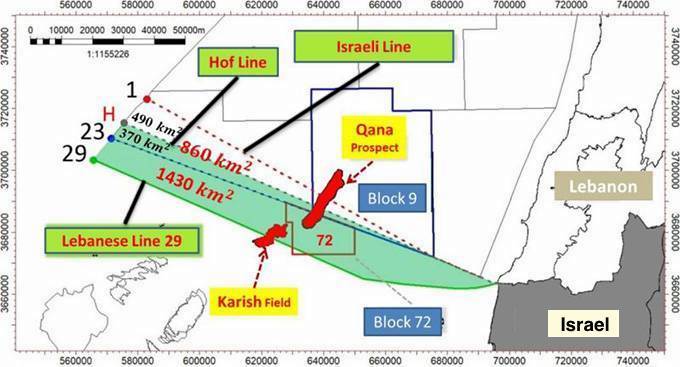
L'Orient Today / Caroline HAYEK/L'Orient-Le Jour -- The presidency says it is 'following protocol,' but deviations have been made in the past. "As if we needed that!" Nayla, 37, bursted out laughing at the news Friday morning, which she said she initially thought was a joke. Lebanon has declared four days of national mourning to honor Queen Elizabeth II, who passed away Thursday night at the age of 96. Baabda announced a period of national mourning to last from Sept. 9 to 11, as well as the day of the queen's funeral, Sept. 18, ten days after her death. The announcement caused strong reactions on social media, with some Lebanese saying they consider the official decision "ridiculous," "shameful" or "really unwelcome in the context of the current crisis." "The families of the victims of Aug. 4 are currently demonstrating for justice for this criminal explosion that killed more than 200 people, and our leaders say that we must mourn a queen who died peacefully," said one commentator.
Like most countries in the region, Lebanon follows a loose protocol when monarchs or heads of state pass away. This seems to tied to the depth of relations between the two countries. King Abdullah II of Jordan, who is of British descent through his mother, announced seven days of national mourning on Thursday. The Hashemite Kingdom and the United Kingdom have a very close relationship dating back to the First World War. But if this decision seems understandable from a country like Jordan, it is less so for Lebanon. A source in Baabda assured L'Orient Le Jour that "the protocol of three days of mourning for each death of a sitting head of state" is strictly followed, to which "one day for the funeral" was added. Yet deviations from the protocol have been made in the past. Following the death of Syrian President Hafez al-Assad in 2000, Lebanon decreed a week of national mourning. Lebanon decreed the same following the death of former Egyptian President Gamal Abdel Nasser in 1970. In contrast, only two days of mourning were decreed for the death of Jordan's King Hussein in 1999. Following the death of former French President Jacques Chirac in 2019, only one day of mourning was scheduled by the Lebanese authorities.

by middleeastmonitor.com -- The US mediator in a long-standing maritime border dispute between Israel and Lebanon said on Friday that the negotiations to resolve the conflict have made "very good progress", Reuters reports. The two countries are locked in US-mediated negotiations to delineate a shared maritime border that would help determine which oil and gas resources belong to which country, and pave the way for more exploration. Amos Hochstein arrived in Lebanon early on Friday for a lightning round of talks with top officials including the President, Prime Minister, Speaker and Deputy Speaker of Parliament, as well as security officials. "I think we're making very good progress," Hochstein said after meeting President Michel Aoun, deputy speaker, Elias Bou Saab and General Security chief, Abbas Ibrahim. He added that he was hopeful an agreement would be reached soon.
Speaking at the Rafik Hariri International Airport at the end of his visit to the country, Hochstein said: "I really feel that we're making progress these last few weeks and I hope to make additional progress and materialize this for an agreement that at the end of the day will give hope and economic activity in Lebanon (and) bring stability to the region, and I think this will be good to all involved." "I'm very hopeful with what I heard today, with what we discussed today, but still more work needs to be done," the U.S. mediator said. He added that the United States is "committed to work to resolve the issues that remain to be able to see if we can reach an agreement that will benefit the people of Lebanon." "At the end of the day that's the goal that we have in mediating this dispute," Hochstein went on to say.
Hochstein was last in Beirut in late July for meetings with Lebanese officials, saying after that visit that he looked "forward to being able to come back to the region to make the final arrangement". At the time, a senior Israeli official told Reuters that the government would present a new Israeli proposal that "includes a solution that would allow the Lebanese to develop the gas reserves in the disputed area, while preserving Israel's commercial rights". A Lebanese official said, at the time, that the proposal would allow Lebanon to explore the entire Qana Prospect, an area with the potential to hold hydrocarbons and which crosses beyond Line 23. Line 23 is the maritime line that Lebanon first set as its border during negotiations, before ramping up its demands to a line further south. Exploration rights south of Line 23 would represent a concession by Israel.

by catholicnewsagency.com -- By Katie Yoder -- Catholic leaders worldwide mourned the death of Queen Elizabeth II — the longest-reigning monarch in British history and the head of the Church of England — after she passed away at the age of 96 on Thursday. They called for prayers while remembering the late queen’s Christian example. “At this time, we pray for the repose of the soul of Her Majesty,” Cardinal Vincent Nichols, the archbishop of Westminster and president of the Catholic Bishops’ Conference of England and Wales, said in a statement. “We do so with confidence, because the Christian faith marked every day of her life and activity.” Nichols went on to cite her Christmas message from 2000. “To many of us, our beliefs are of fundamental importance,” he quoted her as saying. “For me the teachings of Christ and my own personal accountability before God provide a framework in which I try to lead my life. I, like so many of you, have drawn great comfort in difficult times from Christ’s words and example.”
Nichols expressed gratitude and admiration for the queen’s service and called her faith an inspiration. “The wisdom, stability, and service which she consistently embodied, often in circumstances of extreme difficulty, are a shining legacy and testament to her faith,” he said. He asked for prayers for the queen and her son, the new king — King Charles III.

By Najia Houssari -- arabnews.com -- BEIRUT: Relatives of some of the victims of the massive explosion at Beirut’s port in 2020, which killed at least 218 people, on Wednesday protested against the judiciary’s plan to appoint a new judge to the official investigation. They denounced the move as an attempt by the country’s political class to avoid justice. The probe into the blast, which caused billions of dollars in damage, has been stalled since December, after three former cabinet ministers filed legal challenges against the investigating judge, Tarek Bitar. Justice Minister Henri Khoury and the Higher Judicial Council, Lebanon’s top judicial body, are looking at appointing a second judge, reportedly with a view to releasing some port and customs officials and other workers who have been detained without charge since the explosion.
William Noun, whose brother died in the blast, said: “The families of the victims want the investigations to be conducted again. We also want Judge Bitar to carry out his duties away from the political rivalries.” The mother of another victim said: “We are not against setting detainees free. However, truth and justice must be achieved.” Moody Koraytem, the sister of Hassan Kamel Koraytem, the chairman and director general of Beirut Port, who is one of those being detained, said: “The fate of the detainees is in the hands of the people in power. Those detainees have not yet faced a trial, which is unjust to them and their families.” An unprecedented number of cases have been filed against Bitar, who was suspended after he accused a former premier, former ministers and current lawmakers of bearing responsibility for the blast as a result of their negligence.
Khazen History


Historical Feature:
Churches and Monasteries of the Khazen family

St. Anthony of Padua Church in Ballouneh
Mar Abda Church in Bakaatit Kanaan
Saint Michael Church in Bkaatouta
Saint Therese Church in Qolayaat
Saint Simeon Stylites (مار سمعان العامودي) Church In Ajaltoun
Virgin Mary Church (سيدة المعونات) in Sheilé
Assumption of Mary Church in Ballouneh
1 - The sword of the Maronite Prince
2 - LES KHAZEN CONSULS DE FRANCE
3 - LES MARONITES & LES KHAZEN
4 - LES MAAN & LES KHAZEN
5 - ORIGINE DE LA FAMILLE
Population Movements to Keserwan - The Khazens and The Maans
ما جاء عن الثورة في المقاطعة الكسروانية
ثورة أهالي كسروان على المشايخ الخوازنة وأسبابها
Origins of the "Prince of Maronite" Title
Growing diversity: the Khazin sheiks and the clergy in the first decades of the 18th century
Historical Members:
Barbar Beik El Khazen [English]
Patriach Toubia Kaiss El Khazen(Biography & Life Part1 Part2) (Arabic)
Patriach Youssef Dargham El Khazen (Cont'd)
Cheikh Bishara Jafal El Khazen
Patriarch Youssef Raji El Khazen
The Martyrs Cheikh Philippe & Cheikh Farid El Khazen
Cheikh Nawfal El Khazen (Consul De France)
Cheikh Hossun El Khazen (Consul De France)
Cheikh Abou-Nawfal El Khazen (Consul De France)
Cheikh Francis Abee Nader & his son Yousef
Cheikh Abou-Kanso El Khazen (Consul De France)
Cheikh Abou Nader El Khazen
Cheikh Chafic El Khazen
Cheikh Keserwan El Khazen
Cheikh Serhal El Khazen [English]
Cheikh Rafiq El Khazen [English]
Cheikh Hanna El Khazen
Cheikha Arzi El Khazen
Marie El Khazen